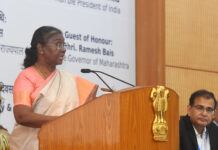
The study analysed every organisation on seven different parameters
Gender parity is not quite the forte of global health organisations shows new report involving UCL researchers.
The report analysed the policies and practices of 140 top health organisations and found that only 40% mention gender in strategy documents and just one-third state a commitment to gender equality to benefit the health of all people.
The findings come from the new research and accountability initiative, Global Health 50/50, part funded by Wellcome and co-led by Professor Sarah Hawkes of UCL’s Centre for Gender and Global Health and Dr Kent Buse of UNAIDS.
The report also showed that decision-making power remains in the hands of men, although women constitute the vast majority of people working in global health, accounting for up to 75% of the health workforce in some countries. In addition the report found 69% of organisations are headed by men and 80% of board chairs are men.
The findings come from the new research and accountability initiative, Global Health 50/50, part funded by Wellcome and co-led by Professor Sarah Hawkes of UCL’s Centre for Gender and Global Health and Dr Kent Buse of UNAIDS.

The 2018 Global Health 50/50 Report is the first of its kind and provides an in-depth look at the extent to which the organisations understand and define gender as a determinant of health, or as an indicator of equality within their own organisation.
“The initiative was established with the aim of promoting dialogue on the two issues. One is blindingly obvious, namely that men rule global health. The report provides the most comprehensive data ever collected to show where most action is needed for gender parity. The second issue is more subtle yet equally insidious. It is the persistent failure of the global health system to consider, let alone address, the highly gendered nature of exposure to health risks, health seeking behaviour, health care service delivery and therefore health outcomes,” said Professor Hawkes and Dr Buse.
The study looked at seven different areas in each organisation to assess and grade their commitment to gender equality. These included: a public statement of commitment to gender equality; gender defined in institutional policies and consistent with global norms; programmatic policies in place to guide gender-responsive action; sex-disaggregated data collected and reported; workplace policies and practices with specific measures to promote gender equality in place; gender parity in governance bodies and senior management; and gender of the head of the organisation and of the head of its governing body.













